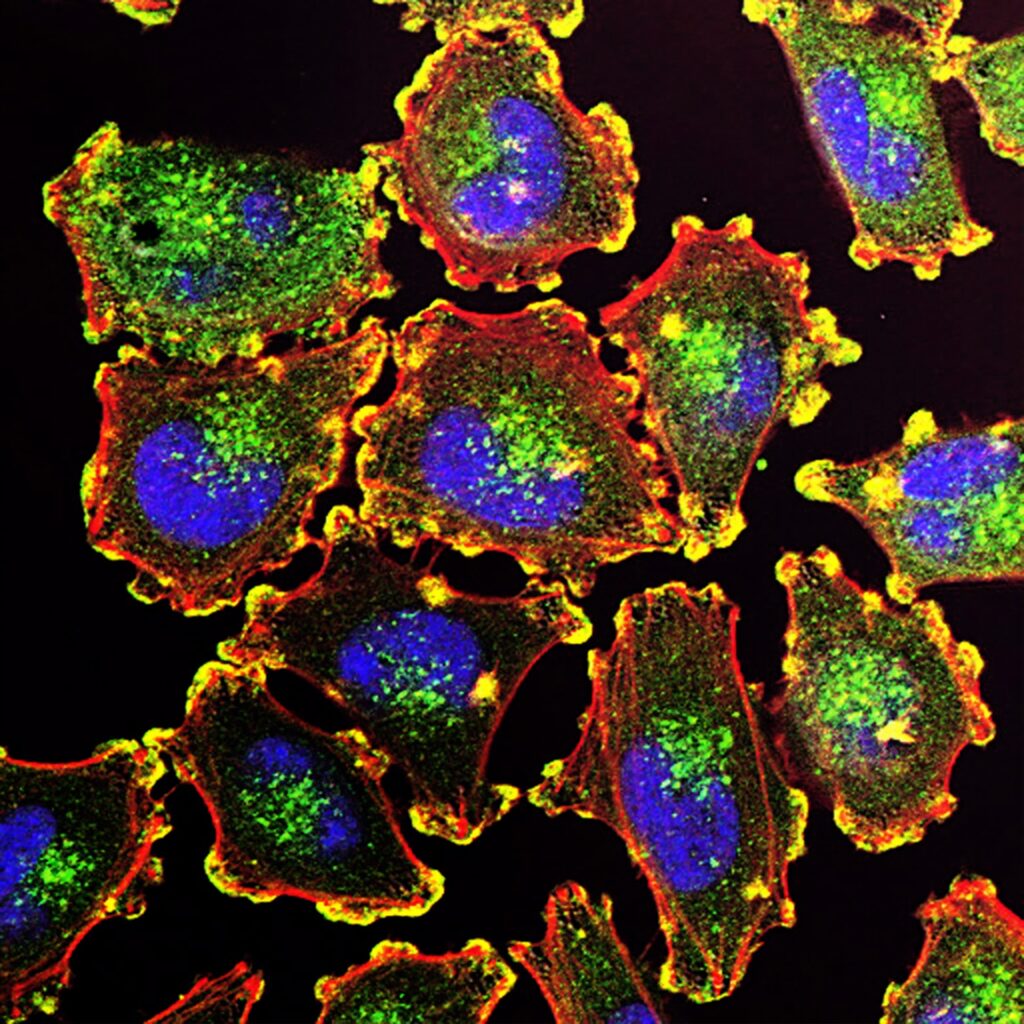How Do Mutations Affect The Hardy Weinberg Equilibrium? – (EXPLAINED)
- What actually is the Hardy Weinberg Equilibrium and how it's related to mutation?
- How do mutations affect the Hardy Weinberg Equilibrium?
- Do You Know? The effect of brand-new mutations on the Hardy Weinberg Equilibrium is pretty much low from one generation to the next
- How genetic equilibrium is related to the Hardy Weinberg Equilibrium in terms of mutations?
How Do Mutations Affect The Hardy Weinberg Equilibrium?
Mutations affect the Hardy Weinberg Equilibrium by causing genetic variations in the population. However, brand-new mutations from one generation to another cause a very less (ignorable) amount of genetic variations, but when, natural selection and other evolutionary factors like gene flow, etc. act upon such caused mutations over generations then the Hardy Weinberg Equilibrium is drastically altered and doesn’t remain in an equilibrium state.
What actually is the Hardy Weinberg Equilibrium and how it’s related to mutation?
The Hardy Weinberg Equation states that the allele and the genotype frequency in a population is stable when the population is not evolving.
Meaning that the allele and the genotype frequency remain constant in the population without any change from generation after generation, when the population is not evolving at all.
And so, this indicates that the population is stable according to the Hardy Weinberg Equilibrium Equation.
It is also to be noted that the Hardy Weinberg Equation is also termed as the Genetic Equilibrium condition because the gene pool (i.e. the total genes and their alleles in a population) remains constant when there’s no evolution.
Using this equilibrium, mathematically it is possible to predict and calculate the frequency of two alternate alleles within a population.
Mathematically, the Hardy Weinberg Equilibrium for genotype frequency is (p+q)2=1 or p2+2pq+q2=1, because the total frequency of the genotypes consisting of two alleles will also be 100% when the population is not evolving.
How Hardy Weinberg Equilibrium is related to mutation? It is be noted that mutations that are the permanent changes in the gene sequence of DNA cause to alter the genes’ and alleles’ biochemistry by altering the sequence of the nitrogenous bases of those genes and alleles. This causes the formation of new genes and alleles which resultedly causes genetic variation in the population over numerous generations leading to disruption in the Hardy Weinberg Equilibrium.
In few of the cases like when the population is very large enough so that accident of sampling may be ignored, or when mating takes place at random, or when mutation takes place at the rate which is same in both directions, or when all of the members of the population survive and have equal reproduction rates. During such cases, the Hardy Weinberg equilibrium is less likely to be violated.
FOR MORE INFO READ: How to use the Hardy Weinberg Equation? Why is the Hardy Weinberg Equation used? And More to Know

How do mutations affect the Hardy Weinberg Equilibrium?
Mutations cause changes in the molecular biochemistry of the genes and alleles resulting in the formation of new genes and alleles.
The mutational changes can result from DNA replication mistakes, exposure to harmful ionizing radiations like UV radiation, X-rays, etc., or also may be due to exposure to mutagens (chemicals), or due to various infections by viruses and bacterias that inject viral particles.
Due to the cause of mutation, the allele or gene frequencies in a population change over generations that cause the Hardy Weinberg Equilibrium of those allele or gene frequencies to disrupt causing deviations in the graph value from the equilibrium value ‘1’.
This disruption causing deviation of the equilibrium indicates that evolution has taken place in the population.
So, it can be clearly stated that mutations cause evolution and so highly affects the Hardy Weinberg Equilibrium by violating it.
So, in very simple words it can be clearly stated that mutation is one of the factors that causes evolution. It causes to create and maintain variations within a population by introducing new genes and alleles in a gene pool.
And, as such the accumulation of mutations over a number of generations may lead to speciation.
The Hardy-Weinberg principle just assumes conditions with no mutations, migration, or natural selective pressure for or against genotype in a large population.
However, in the real world, mutations do occur and no population can satisfy these assumed conditions, as this principle only offers a useful model to compare real population changes.
Do You Know? The effect of brand-new mutations on the Hardy Weinberg Equilibrium is pretty much low from one generation to the next
Yes, it’s very true that mutations do occur in every living body. It is in fact the original source of all genetic variations.
Mutations are the original sources of all genetic variations because these cause changes to an organism’s DNA and so are an important driver of diversity and speciation in a population leading to evolution.
But, a majority of the new mutations don’t cause a massive impact on the genetic makeover of the organisms. So, it is to be noted that a small brand-new mutation is not always enough to create a new gene or allele and change the frequencies.
So, it can be said that species evolve because of the accumulation of various brand-new mutations that occur over time.
The accumulation of various new mutations is the most common way to introduce novel genotypic and phenotypic variance in the population.
So, when mutations occur for the first time, i.e. when brand-new mutations occur its impact on allele or gene frequencies from one generation to the next is usually not so large.
So, the effect of a single new occurring mutation from one generation to the other is ignorable for altering the allele/gene frequencies, or for violating the Hardy Weinberg Equilibrium.
Such brand-new mutations may cause a little bit of alteration in genotype, which is almost ignorable.
However, when other evolutionary forces like natural selection act on the results of mutations then this causes evolution leading to diversity and speciation in the population.
EXPLAINED IN SHORT & IN VERY SIMPLE WORDS: Brand-new mutations don’t affect the Hardy Weinberg Equilibrium as its impact is very very low or is ignorable. But, when various brand-new mutations accumulate together in a population over generations (in thousands to millions of years of timespan) then, this causes evolution and largely affects the Hardy Weinberg Equilibrium by violating it.
And, it is also to be noted that not all mutations lead to evolution. Only the hereditary mutations, that occur in egg or sperm (gametic) cells, are passed to future generations and potentially contribute to an evolution in the population.
So, it is seen that the effect of brand-new mutations on the Hardy Weinberg Equilibrium is pretty much low from one generation to the next.
How genetic equilibrium is related to the Hardy Weinberg Equilibrium in terms of mutations?
The Hardy Weinberg Equilibrium states that the allele or genotype frequencies in a population are not changing at all when the sum total frequency of all alleles or genes is 100% indicating that the population is not evolving.
The Hardy-Weinberg principle provides a mathematical baseline for studying non-evolving populations by comparing them with the evolving populations and thereby to come with various analysis, predictions, and conclusions about what evolutionary forces might be at play in the evolution of the population.
And yes, we all know that mutation is the original source of all genetic variation, but it is also important to note that not all organisms will mutate every time, and so the mutation rate for most organisms is pretty much low.
And so, it won’t be wrong to say that the impact of brand-new mutations on allele frequencies is almost ignorable from one generation to the next.
However, the other evolutionary force called natural selection that acts on the results of mutations is definitely one of the powerful mechanisms of evolution that can surely impact the allele frequencies over generations.
So, How genetic equilibrium is related to the Hardy Weinberg Equilibrium in terms of mutations?
Genetic equilibrium is related to the Hardy Weinberg Equilibrium in terms of mutations as the mutation is one of the driving forces of evolution that violates the equilibrium indicating that evolution has/had occurred.
When a lot of mutations accumulate together over generations then this causes to change in the allele or genotype frequencies in a population. And when, other evolutionary forces like natural selection acts on those accumulated mutations evolution occurs respectively.
